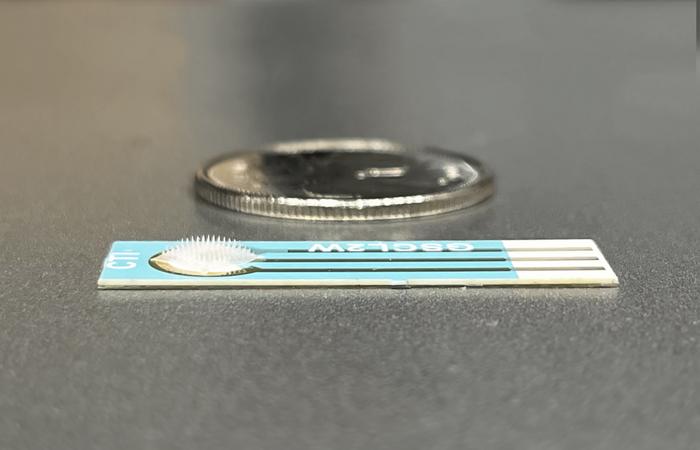Revolutionary Wearable Patch Offers Continuous Health Monitoring
Pain-free wearable sensor reads and sends data on blood glucose, lactates, and other critical biomarkers, including indicators of acute cardiac disease
Jun 18, 2024
[DALLE]
Canadian researchers from McMaster University and the University of Waterloo have unveiled a groundbreaking wearable sensor, the Wearable Aptalyzer. This innovative device promises pain-free, continuous monitoring of critical health biomarkers like blood glucose and lactates, sending real-time data directly to smartphones and revolutionizing chronic disease management. A detailed analysis of the new monitor was described recently in Advanced Materials.

Continuous, Real-Time Health Monitoring Made Easy
By sending real-time data to electronic devices, this patch provides an ongoing record of vital biomarker patterns, potentially transforming how we monitor and manage chronic diseases. Leyla Soleymani, a professor of Engineering Physics at McMaster, highlights the significance: “This technology can provide real-time information about both chronic and acute health conditions, allowing caregivers to act more quickly and with greater certainty when they see trouble.”
The Wearable Aptalyzer offers a general platform for measuring various biomarkers, from diabetes to cardiac indicators. Mahla Poudineh, an assistant professor at Waterloo, emphasizes its broader impact: “Continuous health monitoring helps catch diseases early, track treatment efficacy, and deepen our understanding of disease mechanisms.”
Potential Applications and Future Development
The patch is designed for convenience, applying and removing like a small bandage. This user-friendly aspect is particularly appealing to diabetics and others who currently rely on invasive blood tests or less specific monitoring methods.
One of the most promising aspects of this technology is its ability to provide meaningful data over several weeks, transmitting this information to devices that healthcare professionals can access without sophisticated equipment. This capability is especially valuable for real-time monitoring of cardiac events, making it a critical tool in emergency medical settings.
Moreover, the Wearable Aptalyzer can adapt to various chronic illnesses, including cancers, providing continuous data that could lead to better treatment outcomes. Its potential extends to remote care settings, such as northern Indigenous communities far from hospitals, and even space flights, where timely medical data can be life-saving.
The next steps for the Wearable Aptalyzer involve human trials and regulatory approvals. The researchers are actively seeking partners to commercialize this innovative technology.
The research team, including lead authors Fatemeh Bakhshandeh from McMaster and Hanjia Zheng from Waterloo, has published their findings in the journal Advanced Materials. This interdisciplinary collaboration also includes contributions from several other experts from both institutions.


















